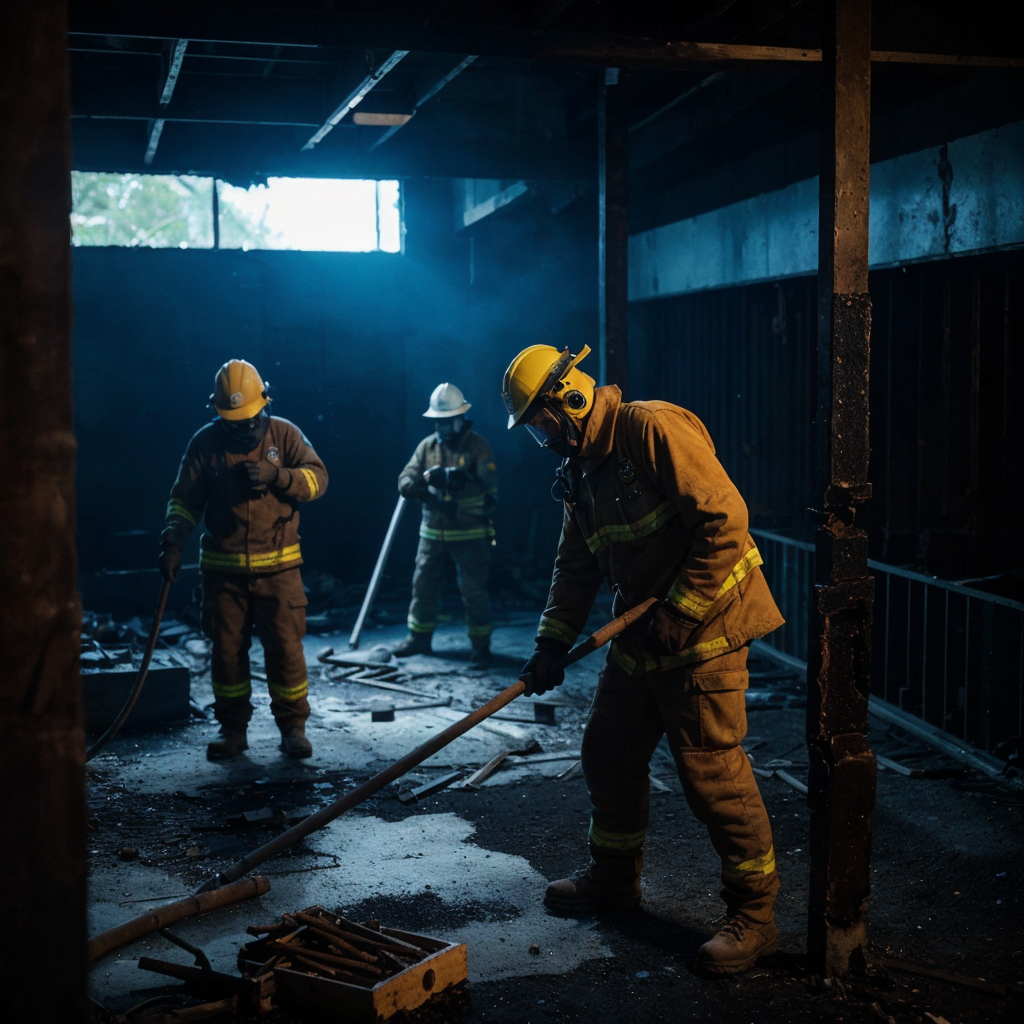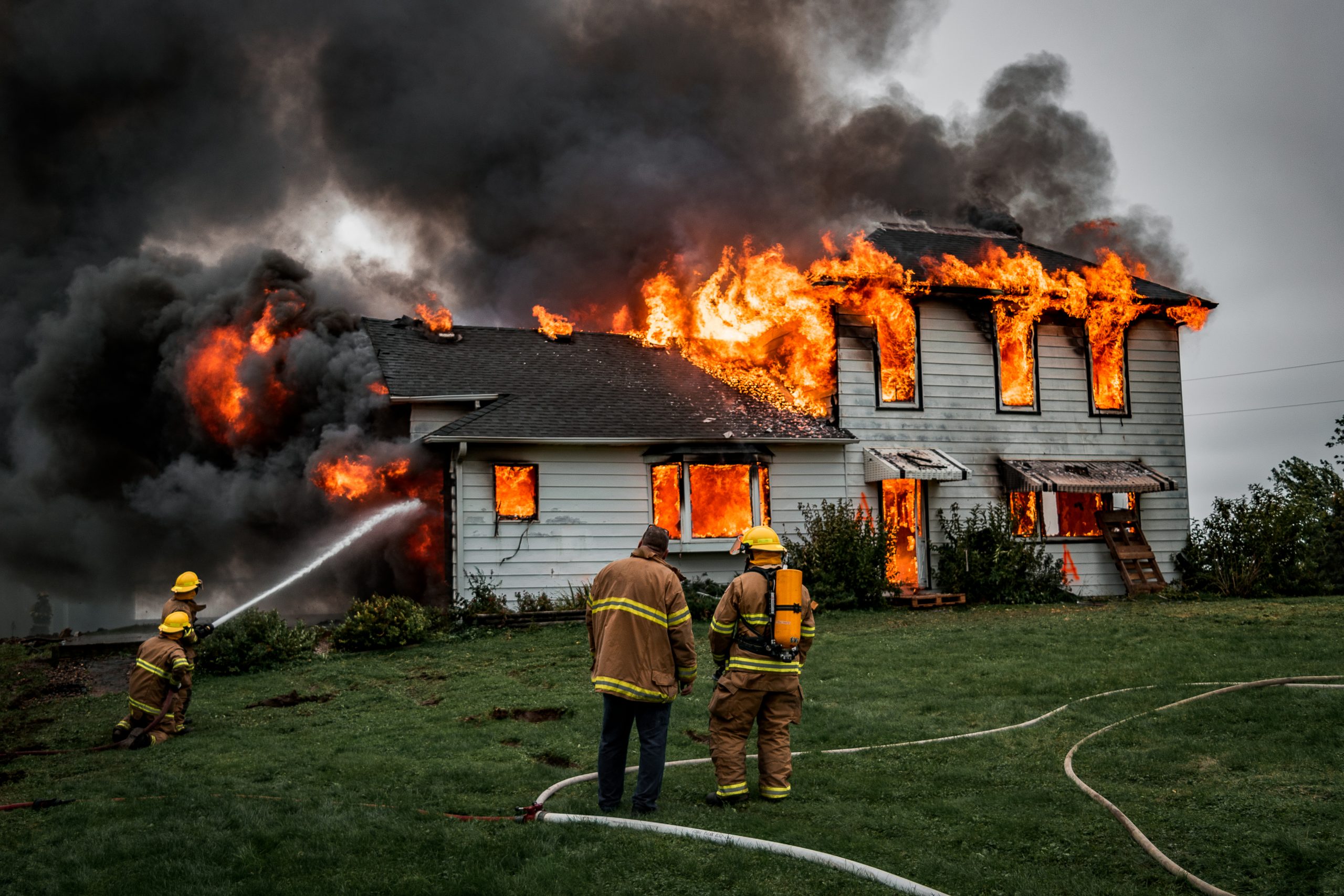Experiencing a fire in your home can be a traumatic and overwhelming event. In addition to the immediate danger to life and property, the aftermath of a fire can bring about emotional, logistical, and financial challenges. This comprehensive guide aims to provide homeowners with a structured approach to dealing with fire damage, incorporating helpful tips from organizations like the American Red Cross. It covers essential steps to take immediately after a fire, addressing safety concerns, managing smoke odors, choosing a contractor, handling the insurance claims process, and managing expectations regarding the duration of the restoration project.
- Ensure Safety:
- Safety is paramount. Do not re-enter your home until authorities declare it safe to do so.
- Be cautious of structural damage, hot spots, and potential hazards like electrical wires.
- If necessary, seek temporary accommodation with friends, family, or emergency shelters recommended by local authorities.
- Contact Emergency Services:
- Call 911 to report the fire and request assistance.
- Emergency responders will extinguish the fire, provide medical aid if needed, and secure the area.
- Contact Loved Ones:
- Inform family and close friends about the situation.
- Reassure them of your safety and whereabouts.
- Assess Damage:
- Once the fire department has deemed it safe, assess the extent of the damage to your property.
- Document the damage thoroughly through photographs and written descriptions. This documentation will be crucial for insurance claims.
- Contact Your Insurance Company:
- Notify your insurance company about the fire as soon as possible.
- Provide detailed information about the damage and follow their instructions for filing a claim.
- Keep records of all communication with your insurance company, including claim numbers and adjuster contacts.
- Mitigate Further Damage:
- Take steps to prevent further damage to your property, such as boarding up windows, covering exposed areas, or tarping the roof if safe to do so.
- Do not attempt repairs beyond your expertise. Wait for professional assessment and guidance.
- Seek Support:
- Reach out to organizations like the American Red Cross for assistance.
- The Red Cross provides support services such as temporary shelter, food, clothing, and emotional support for those affected by disasters.
- Dealing with Smoke Odors:
- Ventilate the property by opening windows and doors if it’s safe to do so.
- Use fans and dehumidifiers to help circulate air and reduce moisture, which can exacerbate odors.
- Consult professional restoration services for specialized equipment and techniques to remove smoke odors effectively.
- Salvage Personal Belongings:
- Salvage items that are safe to handle and not extensively damaged by fire or water.
- Prioritize valuable or sentimental items, but avoid risking your safety for material possessions.
- Choosing a Contractor:
- Research and interview multiple contractors specializing in fire damage restoration.
- Verify their licenses, insurance coverage, and certifications.
- Request references and reviews from previous clients.
- Choose a contractor with experience, expertise, and a reputation for quality workmanship.
- Obtain detailed written estimates outlining the scope of work, timelines, and costs involved.
- Expectations for Project Duration:
- Understand that the duration of the restoration project can vary depending on the extent of the damage and the complexity of the restoration process.
- Discuss timelines and milestones with your chosen contractor to manage expectations.
- Factors influencing project duration may include structural repairs, smoke odor removal, water damage mitigation, and coordination with insurance adjusters.
- Be prepared for unexpected delays due to unforeseen complications or supply chain issues.
- Await Professional Assessment:
- Wait for professional restoration specialists to assess the damage and develop a restoration plan.
- Follow their guidance regarding cleanup, repairs, and restoration efforts.
- Stay Informed:
- Stay informed about updates regarding your insurance claim, restoration progress, and any community resources available for fire victims.
- Emotional Support:
- Seek emotional support from friends, family, support groups, or mental health professionals.
- Coping with the aftermath of a fire can be emotionally challenging, and it’s essential to prioritize your mental well-being.
Conclusion: Experiencing a fire in your home is a devastating event, but with the right approach, support, and resources, you can navigate the aftermath and rebuild. By prioritizing safety, promptly contacting emergency services and insurance providers, seeking support from organizations like the American Red Cross, choosing a reputable contractor, and managing expectations regarding project duration, you can begin the journey towards recovery and restoration. Remember, you’re not alone, and there are people and resources available to help you through this challenging time.


